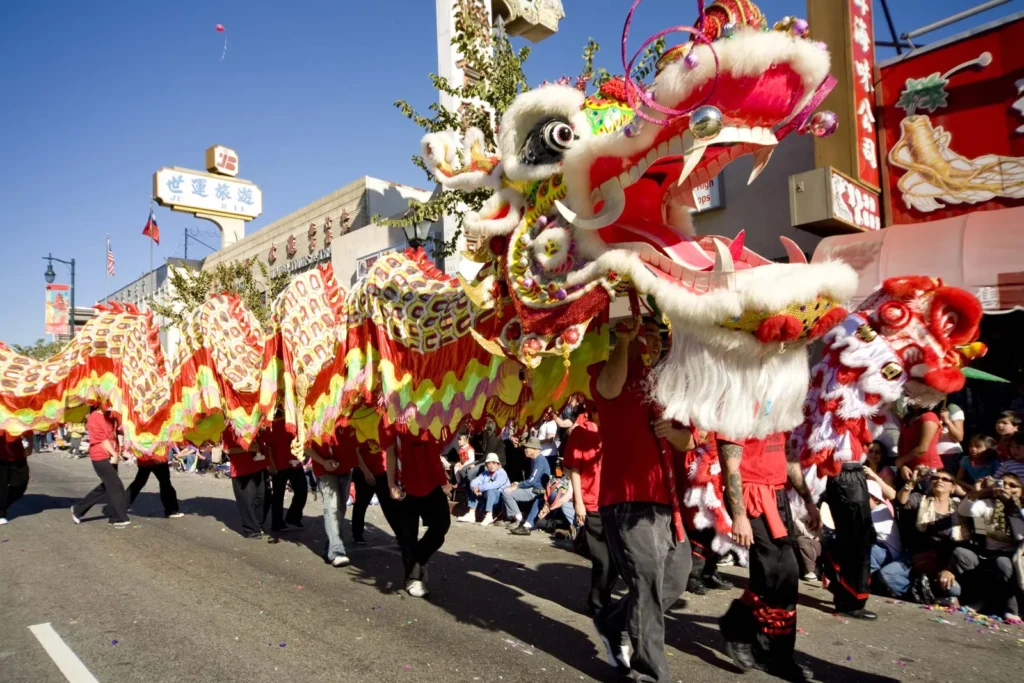
The occasion, otherwise called Chinese New Year, depends on a lunar and sunlight based cycle schedule so it changes dates yearly, yet as a rule tumbles from late January to mid-February. Tantamount to Thanksgiving and Christmas joined, it’s viewed as the main celebration in excess of 10 nations, including China, Korea, Vietnam: an opportunity to assemble with family and eat, eat, eat
While the greatest celebrations occur across a wide area of East and Southeast Asia, workers all through the U.S. celebrate also. American examinations doctoral up-and-comer Xinqian “Allison” Qiu has been concentrating on Chinese American Lunar New Year observances in the D.C. metropolitan region beginning around 2018. Occasions range from Smithsonian and Kennedy Center exhibitions co-supported by Asian international safe havens or social associations to the D.C. Chinatown March, as well as local area ability shows and food markets in rural areas with huge Asian American populaces.
“While many have conventional components like lion dance and winged serpent dance, they’re additionally attempting to make their occasions as different and comprehensive as could be expected,” said Qiu. The Chinatown march, for instance, has remembered Brazilian drummers and Pride entertainers for ongoing years.
Qiu trusts that by spreading consciousness of Asian American occasions and customs — Lunar New Year is an authority occasion in a small bunch of states, rather than including Maryland — that these occasions can be a strong method for combatting hostile to Asian disdain that flooded during Coronavirus and decline the underlying victimization Asian Americans that traces all the way back to the Chinese Rejection Demonstration of 1882.

“These festivals are a safe harbor for immigrants and their descendants, a way to preserve their heritage and memories,” Qiu said. “It’s also a chance to show up, stand up and speak up.”
On the eve of Lunar New Year, she explains why the ancient Chinese burned bamboo, the reason red envelopes should contain brand-new bills and how the humble chicken is actually a lucky food.
It Started With a Beast
In Chinese, nian means year—but is also the name of a mythical beast that emerges once a year to feed, especially on children. To keep it at bay, ancient villagers burned bamboo, which would crack and pop, a practice that has evolved into firecrackers.
“When I was a child, I hated it because it smelled so strong and it was loud and scary, but now I really miss it,” said Qiu, who grew up in the Fujian Province in southeast China before coming to the United States to pursue graduate education. “I take my kids to the Chinatown parade every year, because it’s the only place we can legally see and smell traditional firecrackers!””
Red, Red All over
While Spanish bulls charge a warning, the nian monster was said to run from the striking tone, so red turned into a fortunate variety in Chinese culture. During Lunar New Year, individuals compose best of luck couplets to hang by their entryways, glue paper cuttings of words like “spring” and “fortune” and pictures of the year’s zodiac sign — this time a mythical beast — in their windows, and wear new garments.
Above all, they give red envelopes to kids and seniors, loaded up with fresh out of the plastic new bills. “In antiquated China, it was coins. Presently, the new cash represents new abundance coming into your home. Cash that is worn or crumbled might have another person’s mishap implanted,” she said. (Some in China even send advanced red envelopes by means of well known application WeChat.)
Winged serpent Year, Time of increased birth rates
“Chinese winged serpents are the most respectable and favorable creatures in Chinese folklore,” said Qiu. “They’re very surprising from western pictures of frightening mythical beasts.” They’re thought of as the most impressive and attractive of the 12 zodiac creatures, so customarily, there’s a flood in births in the winged serpent year, rather than the more vulnerable sounding hare or mouse, for instance.
While this year is the extended period of the mythical beast, winged serpent moves are performed at each Lunar New Year festivity — frequently highlighting 10 individuals to rejuvenate the adored animal — to drive away detestable spirits and bring endowments for the new year.
Food With Significance
Chinese is loaded with homonyms (words that sound something similar however have various definitions) so the food sources that show up on a Lunar New Year table all have double implications. Chicken, which sounds like the word for “fortunate,” is one of the most famous dishes across China and the diaspora. Others incorporate fish, which sounds like “excess,” and “implies that you will have more riches, more information, a greater amount of everything in the new year,” said Qiu. In southern China, nian gao, an improved tacky rice creation, sounds equivalent to “going higher,” which prompts raised fortunes. In the north, where wheat is the staple yield, dumplings are an unquestionable necessity; formed like gold ingots, they address wrapping up riches and karma.
“Neighborliness is astonishing during the new year,” Qiu said. “That is no joke!”
